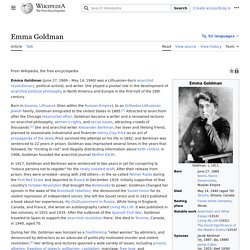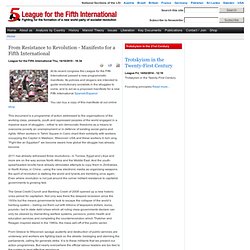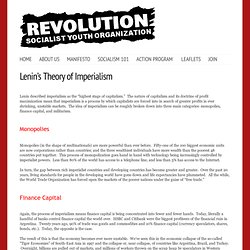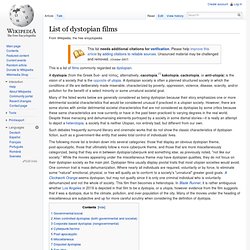

Home - The Union Edge: Labor's Talk Radio. Emma Goldman. 19th and 20th-century Lithuania-born anarchist, writer and orator Emma Goldman (June 27 [O.S.

June 15], 1869 – May 14, 1940) was an anarchist political activist and writer. She played a pivotal role in the development of anarchist political philosophy in North America and Europe in the first half of the 20th century. In 1917, Goldman and Berkman were sentenced to two years in jail for conspiring to "induce persons not to register" for the newly instated draft. After their release from prison, they were arrested—along with 248 others—and deported to Russia. During her life, Goldman was lionized as a freethinking "rebel woman" by admirers, and denounced by detractors as an advocate of politically motivated murder and violent revolution.[3] Her writing and lectures spanned a wide variety of issues, including prisons, atheism, freedom of speech, militarism, capitalism, marriage, free love, and homosexuality.
Biography Family Adolescence Emma Goldman's family in St. Marxists Internet Archive. Seattle Solidarity Network. From Resistance to Revolution - Manifesto for a Fifth International. At its recent congress the League for the Fifth International passed a new programmatic manifesto.

Its policies and slogans are intended to guide revolutionary socialists in the struggles to come, and to act as a proposed manifesto for a new Fifth International Spanish/Espanol You can buy a copy of this manifesto at out online shop This document is a programme of action addressed to the organisations of the working class, peasants, youth and oppressed peoples of the world engaged in a massive wave of struggles – either to win democratic freedoms as a means to overcome poverty an unemployment or in defence of existing social gains and rights.
When workers in Tahrir Square in Cairo chant their solidarity with workers occupying the Capitol in Madison, Wisconsin USA and these workers in turn sing, “Fight like an Egyptian!” We become aware how global the struggle has already become. The Great Credit Crunch and Banking Crash of 2008 opened up a new historic crisis period for capitalism. Lenin’s Theory of Imperialism. Lenin described imperialism as the “highest stage of capitalism.”

The nature of capitalism and its doctrine of profit maximization mean that imperialism is a process by which capitalists are forced into in search of greater profits in ever shrinking, unstable markets. The idea of imperialism can be roughly broken down into three main categories: monopolies, finance capital, and militarism. Monopolies Monopolies (in the shape of multinationals) are more powerful than ever before. Fifty-one of the 100 biggest economic units are now corporations rather than countries; and the three wealthiest individuals have more wealth than the poorest 48 countries put together.
In turn, the gap between rich imperialist countries and developing countries has become greater and greater. Home » pa. Trotsky.net. In Defence of Marxism. Marxist Internet Subject Archive. Famous Quotes Famous quotes from Hegel, Marx, Engels, Lenin, Trotsky, Mao and other communists with links to the context on the Marxists Internet Archive.

Links International Journal of Socialist Renewal. Adbusters Culturejammer Headquarters. International Socialist Review. Libcom.org. List of dystopian films. This is a list of films commonly regarded as dystopian.

A dystopia (from the Greek δυσ- and τόπος, alternatively, cacotopia,[1] kakotopia, cackotopia, or anti-utopia) is the vision of a society that is the opposite of utopia. A dystopian society is often a planned structured society in which the conditions of life are deliberately made miserable, characterized by poverty, oppression, violence, disease, scarcity, and/or pollution for the benefit of a select minority or some unnatural societal goal. Many of the listed works below are generally considered as being dystopian because their story emphasizes one or more detrimental societal characteristics that would be considered unusual if practiced in a utopian society. However, there are some stories with similar detrimental societal characteristics that are not considered as dystopias by some critics because these same characteristics are now currently or have in the past been practiced to varying degrees in the real world.
See also[edit] Anarcho-primitivism. History[edit] Origins[edit] Anarchism started to have an ecological view mainly in the writings of American individualist anarchist and transcendentalist Henry David Thoreau.

In his book Walden, he advocates simple living and self-sufficiency among natural surroundings in resistance to the advancement of industrial civilization.[2] "Many have seen in Thoreau one of the precursors of ecologism and anarcho-primitivism represented today by John Zerzan. For George Woodcock, this attitude can also be motivated by the idea of resistance to progress and the rejection of the increasing materialism that characterized North American society in the mid-19th century. This tendency was strong enough as to call the attention of the CNT–FAI in Spain. Recent themes[edit]